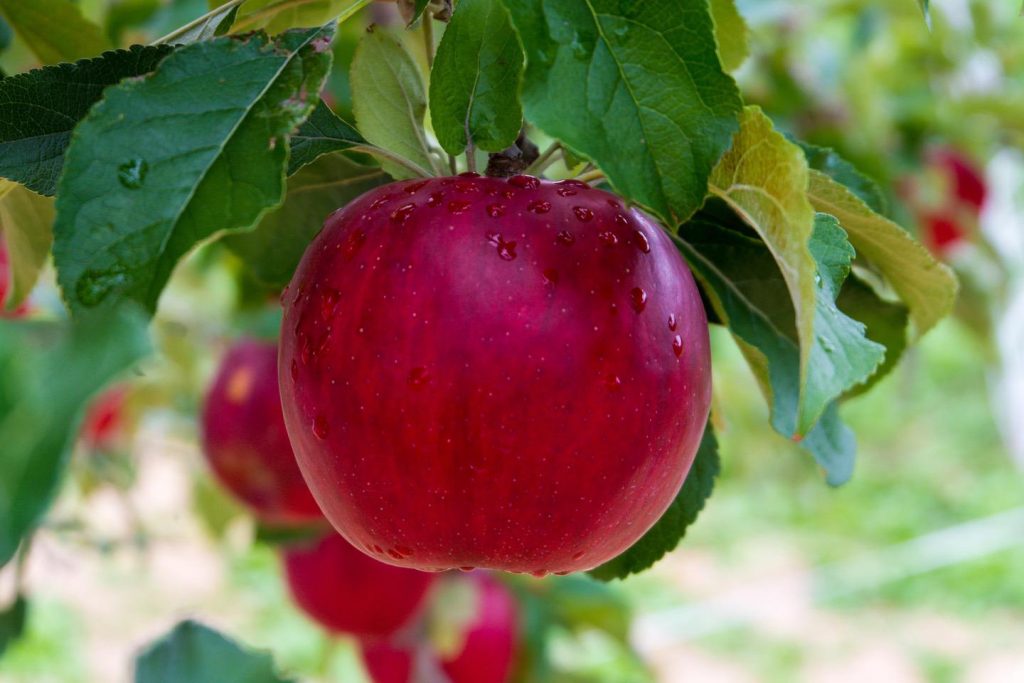
No one during His lifetime considered Jesus an arborist, and Jesus never claimed to be such. So when He says something about trees, He is not meaning to give a lesson in agriculture; “If you grow a healthy tree, you’ll pick healthy fruit. If you grow a diseased tree, you’ll pick worm-eaten fruit. The fruit tells you about the tree.” (MSG)
Jesus is speaking about our lives. Each of us gets to choose what kind of life we want to live, and by that choice we choose what the result of our lives will be. A poor choice results in poor outcomes. A good choice results positive outcomes. While that outcome is ultimately our destiny, the choice we are making is repeatedly demonstrated in season by what we produce.
Arguably the first thing people produce from their lives is the fruit of their lips. People who are making good choices say things that build up and bless those around them. Their words encourage you toward God and all that God’s Kingdom is. Their words will inspire, motivate, support and encourage “love, joy, peace, forbearance, kindness, goodness, faithfulness, gentleness and self-control.” They encourage and foster holiness. People making bad choices spew forth bad things. Their words will inspire, motivate, support and encourage “hatred, discord, jealousy, fits of rage, selfish ambition, dissensions, factions and envy.”
When He said “The fruit tells you about the tree”, Jesus was speaking to a group of people (Pharisees) who had just accused Him of being full of the devil. In saying so, they had blasphemed the Spirit of God, by which Jesus was speaking and acting. That is why He prefaced His comment with, “If you reject the Son of Man out of some misunderstanding, the Holy Spirit can forgive you, but when you reject the Holy Spirit, you’re sawing off the branch on which you’re sitting, severing by your own perversity all connection with the One who forgives.” (MSG) To Jesus – and to all who listen attentively to His Word – the Pharisees had clearly demonstrated by the fruit of their own lips that they were full of that which was impure and unholy.
A tree feeds on the soil it finds itself in. As it grows, the food it eats (in the form of the minerals and nutrients it absorbs) becomes part of it. So it is with people. We are effectively products of that which we feed upon. If we feed upon unclean things, our character becomes unclean. If we feed upon clean things, we produced “good fruit”. That’s why Paul wrote, “whatever is true, whatever is noble, whatever is right, whatever is pure, whatever is lovely, whatever is admirable—if anything is excellent or praiseworthy—think about such things.” Paul wasn’t pushing the power of positive thinking – he simply understood what Jesus meant about being a good tree, and he was telling us how to grow into a good tree so that we might produce good fruit.
Much of the insight of holistic medicine rings true because we always knew it. Is it news that we are what we eat?
Kathryn Lindskoog
APPLICATION: Intentionality
Financial professionals tell us is a good idea to periodically examine how we’re spending and investing our money. Fitness coaches tell us it is good idea to periodically examine our exercise regime. Nutritionists tell us it is a good idea to periodically examine our physical diet. The same principle holds for our mental and spiritual sides. Christian, what are you feeding yourself?

